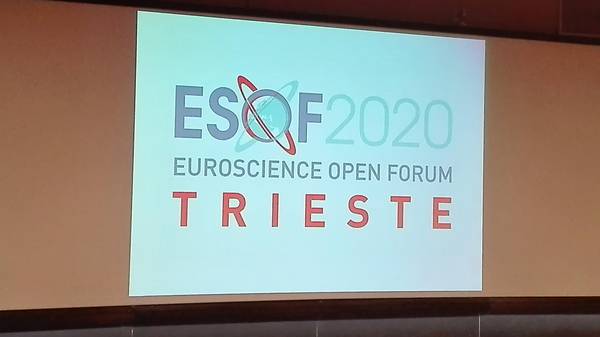EuroScience 2020: Fantoni, science at service of citizens
Editorial of Fit president, organizers of the event
08 June, 20:09In this vein, the 2020 edition of the EuroScience Open Forum will be composed of dialogue and the identification of common solutions for the future, and not by chance. Since the beginning, the project has been aimed at a very ample and partially unexplored area, shaped by previous editions of the event - an area that stretches from the Baltic Sea to the Balkans.
"As a representative city of Central Europe", one reason for the recognition of Trieste by Euroscience, the June city "will operate so that ESOF2020 can be an example of strong and effective links with scientists, entrepreneurs, politicians and citizens who belong to the countries of Central and Eastern Europe ". If you want to take your task seriously, our event will not be able to eliminate the arguments nor remove the tendency in recent years of certain governments to take decisions on scientific issues. There have been too many concrete examples demonstrating the will of some eastern nations of the old continent to establish what is scientifically important and what is not based on political needs. This tendency puts at risk the assumption that science is based on the free circulation of knowledge, a principle to which science owes much of its great development. In addition to geographic enlargement, the success of the event will be measured by its ability to articulate a collective discussion, a real exercise in self-analysis of the relationships between science and society, which looks at the development of life in a truly ambitious way. It aims to adopt a farsighted approach that is capable of putting the following themes of the coming decades on the public agenda with courage and without fear of the future: global warming, food, water, health, migration, disintegration of the world of work, the consequences on society and on daily life of the apparently uncontested spread of unconscious algorithms - always with great intelligence, and without ever neglecting the crucial role of scientific research and innovation in economic and social development.
For this reason, the 2020 EuroScience Open Forum in Trieste will not allow itself to be a showcase of the wonders of science open to the admirers of research for just five days. The objective is rather to create the best possible platform for the construction of a new sense around problems that concern both the internal dynamics of science - from career mobility and scientific publishing, to research funding - and the relationships between science and business, innovation, politics, and the media. More than simply presenting solutions or giving lessons, ESOF2020 will be successful if it becomes a possible and credible space for negotiating and integrating different skills and knowledge.
We will try to implement this through a unique approach that will unite all our efforts: freedom. We have chosen the motto Freedom for Science, Science for Freedom, because one of the ways in which Trieste has proven its worth in the past in the face of the illusions of self-sufficiency and provincialism, has been intellectual curiosity towards the outside. It has demonstrated its ability to accept the challenge of diversity, transforming it into a project of change and not of inequality, by starting with the invention of scientific diplomacy, when the capital of Giulia was one of the garrisons of the Iron Curtain descending on Europe.
The theme of freedom obviously triggers the issue of responsibility and community. We are convinced that a science proud of itself, but at the service of the citizens, is fundamental in redefining what the common good is, as well as what is the lowest common denominator of knowledge that must be made available to all in order to be fully-fledged citizens of our time. We are also convinced that without knowledge, it is not possible to "free ourselves", or at least strengthen the chance of freeing ourselves in the face of indifference or even at the expense of the freedom of others. (ANSA).














